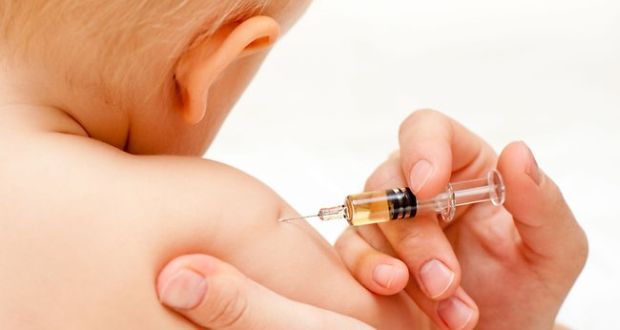Vaccine Shedding
Vaccine Shedding – General
Secondary Transmission: The short and sweet about live virus vaccine shedding
————————————————-
Do You Want to Remain Informed about the Latest Vaccine News?
————————————————-
————————————————-
Chickenpox (varicella) vaccine
“Due to the concern for transmission of vaccine virus, vaccine recipients should attempt to avoid whenever possible close association with susceptible high-risk individuals for up to six weeks following vaccination with VARIVAX. Susceptible high-risk individuals include: • Immunocompromised individuals; • Pregnant women without documented history of varicella or laboratory evidence of prior infection; • Newborn infants of mothers without documented history of varicella or laboratory evidence of prior infection and all newborn infants born at <28 weeks gestation regardless of maternal varicella immunity.” VARIVAX® -
SOURCE: Varicella Virus Vaccine Live (Package Insert)
————————————————-
MMR
Excretion of small amounts of the live attenuated rubella virus from the nose or throat has occurred in
the majority of susceptible individuals 7 to 28 days after vaccination. There is no confirmed evidence to
indicate that such virus is transmitted to susceptible persons who are in contact with the vaccinated
individuals. Consequently, transmission through close personal contact, while accepted as a theoretical
possibility, is not regarded as a significant risk.
33
However, transmission of the rubella vaccine virus to infants via breast milk has been documented (see
Nursing Mothers). There are no reports of transmission of live attenuated measles or mumps viruses from vaccinees to susceptible contacts.
SOURCE
————————————————-
Nasal Spray Flu Vaccine
Can people receiving the nasal spray flu vaccine pass the vaccine viruses to others?
Yes, but its rare. Data indicate that both children and adults vaccinated with nasal spray can shed vaccine viruses after vaccination, although in lower amounts than occur typically with shedding of wild-type influenza viruses. Rarely, shed vaccine viruses can be transmitted from vaccine recipients to unvaccinated persons. However, serious illnesses have not been reported among unvaccinated persons who have been infected inadvertently with vaccine viruses.
See Prevention and Control of Seasonal Influenza with Vaccines: Recommendations of the Advisory Committee on Immunization Practices – United States, 2013-14: Live Attenuated Influenza Vaccines: Shedding, Transmission, and Stability of Vaccine Viruses for more information.
SOURCE
————————————————-
Rotavirus Vaccine
Rotavirus vaccines: viral shedding and risk of transmission
————————————————-
Whooping Cough Vaccine
FDA animal study: Whooping cough vaccine fails to stop the disease’s spread
By Nick Paul Taylor
December 5, 2013
For most of the second half of the 20th century, whooping cough was a disease of the past, one of many previously common infections practically eliminated by vaccines. Since the 1980s the bacteria has fought back, though, and now FDA researchers have a theory why–vaccines might not be stopping transmission.
The hunch is based on FDA research into the spread of whooping cough among baboons, animals that respond to the bacteria in a similar way to humans. Writing in the Proceedings of the National Academy of Sciences, the team reports that baboons given the acellular vaccine–which has been used in the U.S. since the 1990s–were more likely to transmit the bacteria than those who received the whole-cell version. The germ persisted for almost twice as long in the throats of baboons given the acellular vaccine.
Whole-cell vaccines were phased out amid safety concerns, but the study suggests that while its acellular replacement stops people feeling ill, it might not stop them transmitting the bacteria. The finding may explain the resurgence of whooping cough. “There were 48,000 cases reported last year despite high rates of vaccination. This resurgence suggests a need for research into … improved ways to prevent the disease from spreading,” National Institute of Allergy and Infectious Diseases director Dr. Anthony Fauci said.
Sanofi ($SNY), which along with GlaxoSmithKline ($GSK) sells an acellular pertussis vaccine in the U.S., has questioned the applicability of the findings to humans. Others find the data more compelling though. “There’s a difference between protecting individuals from illness and bringing down the incidence of pertussis in the population. To do both we may need a different vaccine,” FDA microbiologist and co-author of the paper Tod Merkel told Science.

